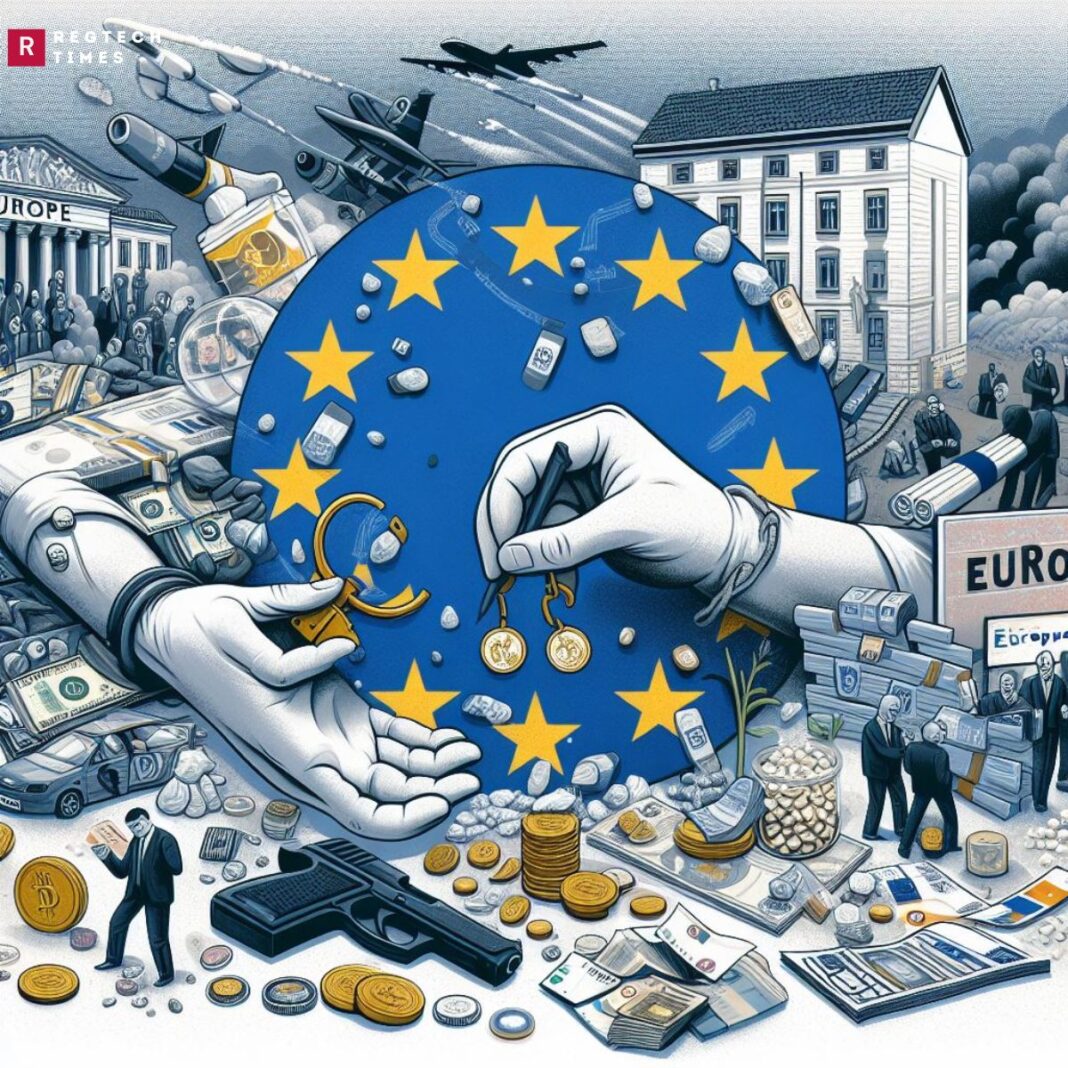European real estate has become a top target for criminal groups looking to launder their illegal gains in recent years. The infiltration of illegal monies into the legal economy has been made easier by a confluence of circumstances, such as the region’s allure as an investment destination, inadequate regulatory monitoring, and opaque financial transactions. Authorities and stakeholders are debating the pressing need to address systemic vulnerabilities and protect the integrity of Europe’s property markets as information about the severity of this issue comes to light.
The Nexus of Crime and Real Estate
The issue is vividly shown in a recent report released by Europol, the EU organization for law enforcement cooperation. Real estate is being used by more than one-third of the most dangerous criminal networks operating in the European Union as a means of profit laundering. With a total membership of almost 25,000, these 821 criminal groups are skilled in using the weaknesses in the legal system to conceal their illegal activity and justify their benefits. A rising number of people are using luxury real estate, cash-intensive industries like hospitality, and even cryptocurrency as cover for money laundering schemes.
These criminal networks operate in ways that go beyond simple money exchanges. According to Europol’s findings, a complex network of collaboration and corruption exists throughout the EU, with criminal elements infiltrating respectable companies. Hotels, fruit companies, and other legitimate businesses have unintentionally turned into fronts for illegal activity and have become means of laundering illicit funds. The Europol research emphasizes how the criminal world and the legal economy are intertwined, showing how criminal organizations use industries like hotels, fruit distribution, and luxury goods to launder their illegal gains. This issue is best exemplified by the example of an Italian businessman with Argentinian roots who operates in Spain. His apparent lawful activities, such as owning sports facilities and importing fruit, are exposed by investigations as having connections to drug trafficking and money laundering. This serves as a sobering reminder of the deceitful ways that criminal activity may infiltrate the real estate industry.
Challenges and Consequences
The infiltration of criminal funds into the real estate market poses multifaceted challenges to European authorities. The intricacy of global money flows combined with the opaque nature of real estate transactions makes it challenging to successfully identify and penalize money laundering operations. A further layer of complexity is added by the progressive implementation of regulatory measures like the Energy Performance of Buildings Directive, which force property owners to spend a significant amount of money on renovations in order to meet environmental standards.
Unchecked money laundering also has effects that go beyond financial ones, endangering the foundation of civilization itself. The expansion of illicit funds in the real estate sector has detrimental impacts, including drug-related violence, corruption, and a decline in faith in institutions. The need to address this urgent issue is highlighted by the recent record cocaine seizures and drug-related violence in several EU member states.
Towards Solution
Regulatory entities and law enforcement agencies are stepping up their efforts to prevent financial crime in response to the growing threat of money laundering through real estate. To close regulatory gaps and improve transparency in beneficial ownership records, the European Union recently adopted new anti-money laundering regulations and directives.By granting generalized access to beneficial ownership information, authorities aim to empower civil society.
There is an immediate need for coordinated action at the national, regional, and international levels in light of the findings about the widespread exploitation of European real estate for money laundering. Addressing this complex issue calls for a thorough and well-coordinated strategy, ranging from regulatory changes to increased enforcement actions. As Europe confronts the nexus of crime and real estate, stakeholders must remain vigilant in their pursuit of transparency, accountability, and justice. The adoption of new anti-money laundering regulations and directives offers hope for improved transparency and accountability in the sector.



